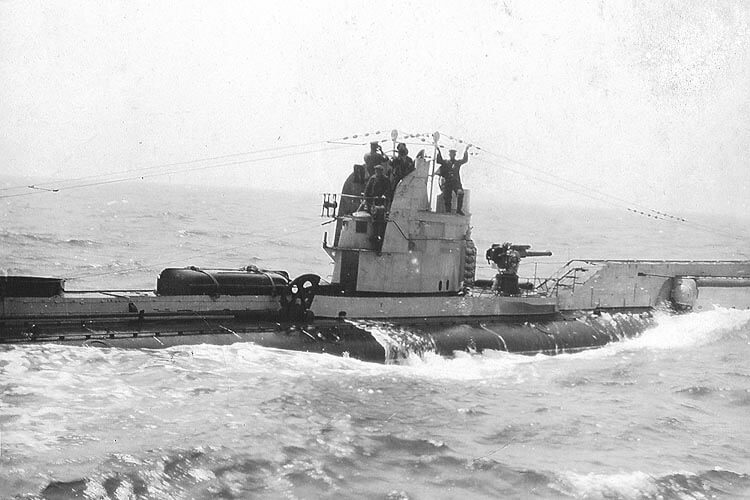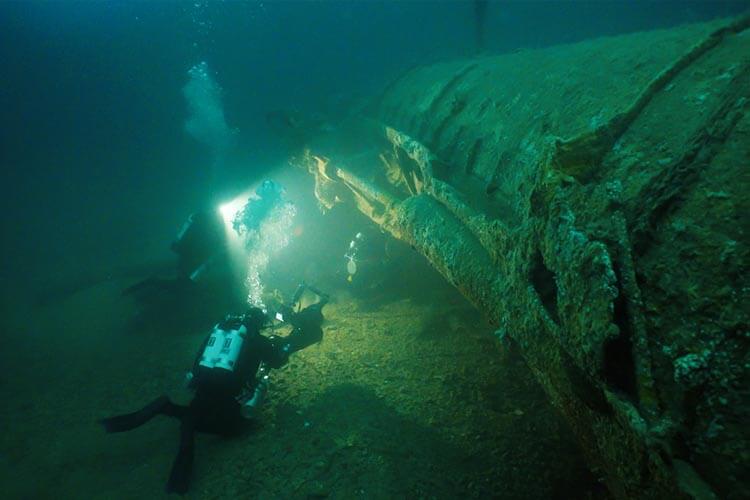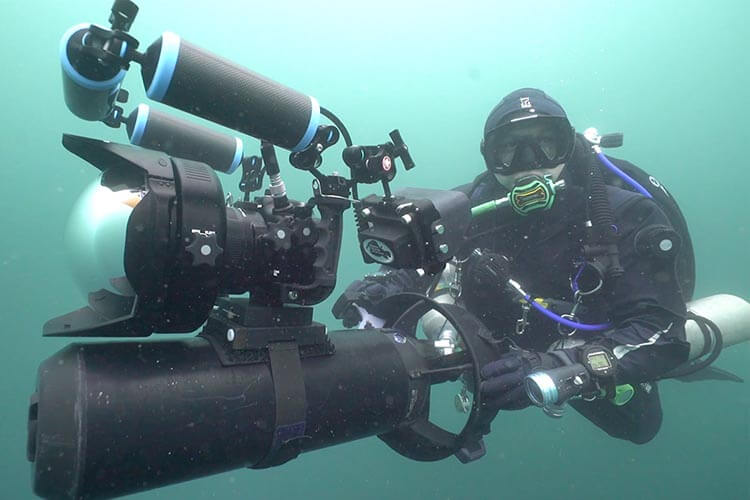
The search for a lost German First World War submarine and the British ship that sank her – and sank with her – is to be showcased in a moving new BBC documentary
By DIVE Staff
Divers from Guernsey in the UK’s Channel Islands have discovered a missing First World War German U-Boat, UC-18, following a four-year search across thousands of square kilometres of ocean.
The team also believes they have located the wreck of the British ship that sank the submarine; which will be showcased in a forthcoming BBC documentary, The Hunt for Lady Olive and the German Submarine.
UC-18 was a UC-class II minelaying submarine, part of a group of U-boats known as the ‘Flanders Flotilla’, which patrolled the English Channel during the First World War. She was sunk with the loss of her 28 crewmen on 19 February 1917 after a battle with a British ‘Q-Ship’ known as Lady Olive. Q-Ships were merchant vessels secretly carrying concealed armaments, a ploy to lure the German U-boats into position before launching a surprise attack.
Lady Olive herself was damaged and sunk as a result of the fight, although her entire crew escaped in the ship’s lifeboats and were rescued by a French destroyer some 36 hours later.
Related articles
- Wreck of 18th-Century warship HMS Tyger identified in the Florida Keys
- Bell of WWI shipwreck, USS Jacob Jones, recovered
- Montenegro’s Laboratory of Maritime Archaeology to expand Wrecks4All project
- Historic England Protected Wrecks documentary
- Wreck of British WWII submarine HMS Thistle located off Norway

Although Lady Olive’s crew testified that they had sunk UC-18, the historical accuracy of the battle has been called into question since neither wreck was located – until the team of technical divers based in Guernsey, led by underwater filmmaker Karl Taylor were able to prove the validity of the British crew’s claims.
It took four years of searching and extensive research to locate the final resting place of the German submarine and its lost crew, which was eventually found some 40 miles west of its last reported location of 12 miles south of Guernsey. The wreck of Lady Olive was found nearby, lending weight to contemporary accounts of the battle.
Two other unknown shipwrecks were uncovered and identified during the search.

The wreck lies in 70m of water in the open ocean, making searching for and diving the wreck particularly challenging, especially for Mr Taylor, documenting the search.
‘The organisation of the dives [was] extremely difficult due to the amount of crew and equipment required, the location of the wrecks and the depth of water they’re in,’ said Taylor. ‘We were limited to diving during periods of slack water which only occur during small neap tides.’
‘These had to be coupled with extremely calm sea conditions and good visibility to give us the best chance of completing these technically complicated dives safely,’ Taylor added. ‘Working so far offshore meant that we had to be especially vigilant when planning our dives as any help, should it be needed, was at least two hours away.’
The team conducted several research dives on the U-boat and worked closely with U-boat expert and marine archaeologist Tomas Termote to identify the submarine as UC-18. Taylor also managed to track down a relative of James Simpson, one of Lady Olive’s crew, whose diaries of the encounter with UC-18 helped to confirm its identity.

Details of the wreck’s locations have been shared with the French and German governments, who have expressed their gratitude for the information. The site has now been designated a war grave and access restricted in accordance with international law.
Speaking of the four-year hunt for the submarine, Taylor said he was ‘elated’ with the project and being able to document it, as the circumstances for the two sinkings were ‘an enduring mystery finally solved’ and he hopes that the film would help people realise the sacrifices that all sides made during a very turbulent period of European history.
The documentary film The Hunt for Lady Olive and the German Submarine, narrated by David Harewood OBE, will be aired on the BBC in June this year. More information can be found at www.TheHuntForTheGermanSubmarine.com


